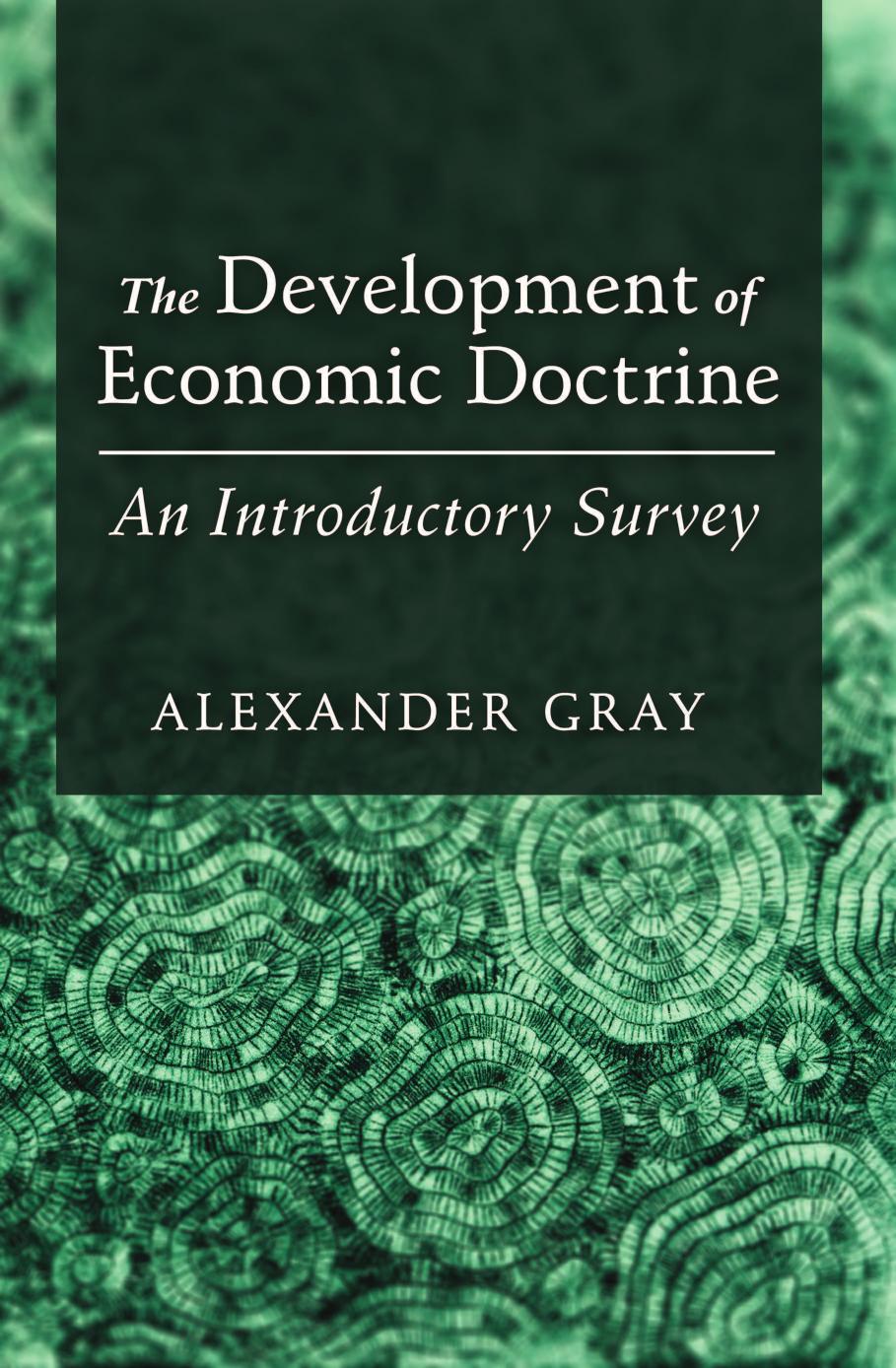The Development of Economic Doctrine: An Introductory Survey by Alexander Gray

Author:Alexander Gray [Alexander Gray]
Language: eng
Format: epub, pdf
ISBN: 978-1-61016-178-7
Publisher: Longmans, Green and Co.
Published: 2007-11-06T16:00:00+00:00
Rae
John Rae5 (1786-1873) has many points in common with Lauderdale, and though a flabbier and less pungent writer, he is not so markedly a disgruntled voice et præterea nihil. In large measure he also is critical of the foundations on which Adam Smith builds, and in particular of two assumptions, firstly, that the national wealth can be increased by the accumulations of private wealth, and secondly, that there is a natural harmony between private and national interests. These are the views expounded in his chief work, New Principles on the Subject of Political Economy1 (1834). Individual accumulation, as a means of advancing the national capital, has, he argues, limits beyond which it cannot pass.2 There is, as in Lauderdale’s example, a limit to the number of flails a country can profitably use; Adam Smith, indeed, had in one place spoken to the same effect regarding pots and pans. Beyond this point, mere accumulation in itself will do no good; that the national capital may increase further, the nation must be hitched up to a higher level of development. Flails must be replaced by threshing machines; that is to say, there must be invention and progress.3
This, for Rae, is the fundamental point of distinction In a passage too long for quotation, he argues that individuals in general increase their capitals by acquiring a larger portion of the common funds. One grows rich, while another grows poor; but while one man may add house to house and farm to farm the national capital itself may remain but little changed. Neighbouring nations, on the other hand, advance and decline in wealth together. Thus, in a characteristic summary:
“As individuals seem generally to grow rich by grasping a larger and larger portion of the wealth already in existence, nations do so by the production of wealth that did not previously exist. The two processes differ in this, that the one is an acquisition, the other a creation.”1
It is a consequence of this view that Rae assigns to invention a place of primary importance in his scheme of things; indeed his work is largely a study of the place of invention in social development. Invention can alone be said to create, and as such it is an essential element in the process of the increase of national wealth; but, having regard to the distinction indicated between national and individual wealth, it cannot be assigned a similar place in the increase of individual wealth.2 Allied to this is his dissent from Adam Smith on the question of division of labour. Smith had noted the encouragement of invention as one of the consequences of division of labour; but this, argues Rae—not without cogency—is to invert the true order of events. Knowledge and discoveries mean the multiplication of instruments; and variety of tools means diversity of trades. It would be wasteful for all men to possess all tools, as in that case the great bulk of implements would in general be lying idle.3 Thus division of labour proceeds from,
Download
The Development of Economic Doctrine: An Introductory Survey by Alexander Gray.pdf
This site does not store any files on its server. We only index and link to content provided by other sites. Please contact the content providers to delete copyright contents if any and email us, we'll remove relevant links or contents immediately.
International Integration of the Brazilian Economy by Elias C. Grivoyannis(109205)
The Radium Girls by Kate Moore(12013)
Turbulence by E. J. Noyes(8040)
Nudge - Improving Decisions about Health, Wealth, and Happiness by Thaler Sunstein(7689)
The Black Swan by Nassim Nicholas Taleb(7104)
Rich Dad Poor Dad by Robert T. Kiyosaki(6602)
Pioneering Portfolio Management by David F. Swensen(6283)
Man-made Catastrophes and Risk Information Concealment by Dmitry Chernov & Didier Sornette(6001)
Zero to One by Peter Thiel(5784)
Secrecy World by Jake Bernstein(4739)
Millionaire: The Philanderer, Gambler, and Duelist Who Invented Modern Finance by Janet Gleeson(4462)
The Age of Surveillance Capitalism by Shoshana Zuboff(4274)
Skin in the Game by Nassim Nicholas Taleb(4235)
The Money Culture by Michael Lewis(4196)
Bullshit Jobs by David Graeber(4177)
Skin in the Game: Hidden Asymmetries in Daily Life by Nassim Nicholas Taleb(3987)
The Dhandho Investor by Mohnish Pabrai(3757)
The Wisdom of Finance by Mihir Desai(3727)
Blockchain Basics by Daniel Drescher(3574)
